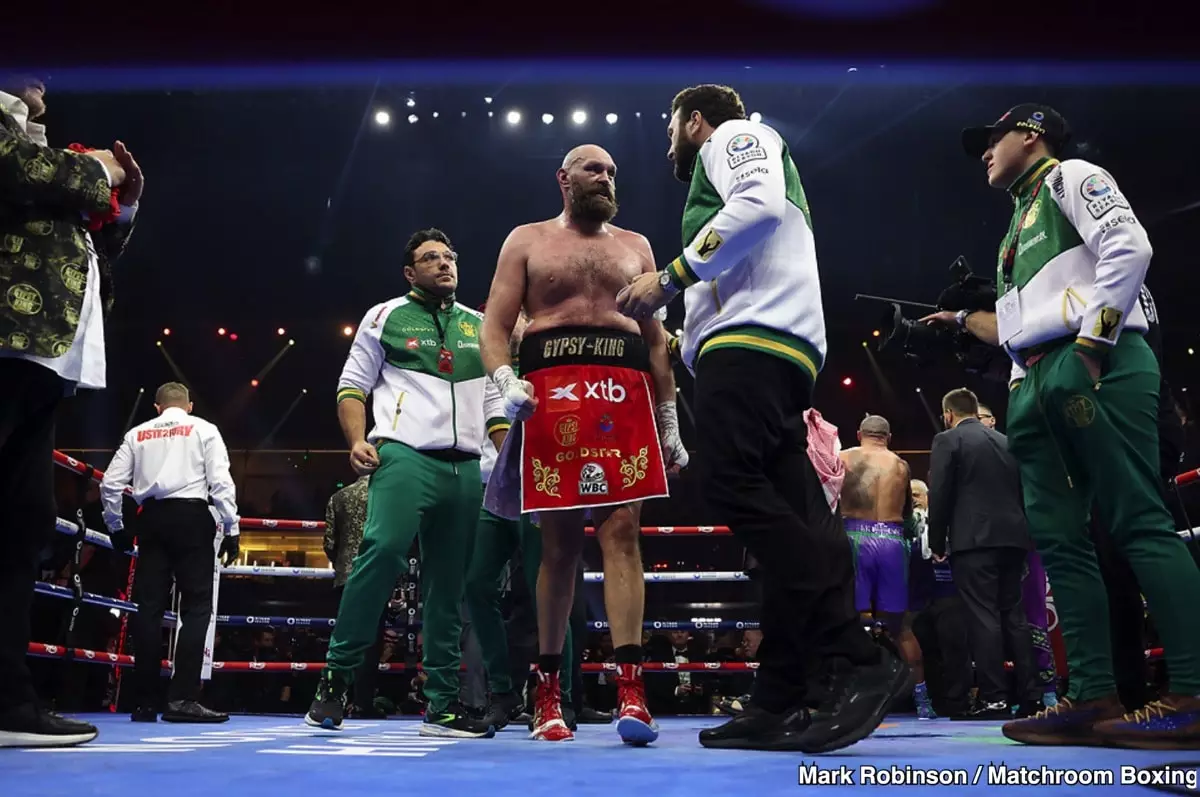In the world of boxing, each match not only represents a battle within the ring but also an intricate dance of strategy, skill, and timing. Tyson Fury’s recent rematch against Oleksandr Usyk has sent shockwaves across the heavyweight division, as the once indomitable champion suffered a unanimous decision loss, a stark contrast to his earlier triumphs. The bout, which unfolded on December 21st in Riyadh, revealed not just the shifting dynamics of two elite fighters but also raised questions about Fury’s readiness and approach to the ring at this stage of his career.
The judges’ scorecards read 116-112 across the board, indicating a clear victory for Usyk. While the numbers may suggest a competitive fight, a closer look reveals a one-sided affair where Fury’s performance was lacking. As someone who watched the fight, the observation was clear; Usyk’s speed and agility overshadowed Fury’s attempts at aggression, leading to a scenario where Fury appeared cumbersome and slow, reminiscent of an aging athlete past his prime rather than the vibrant fighter he once was.
Fury entered this rematch with a noticeable increase in weight, perhaps attempting to replicate his success against Deontay Wilder. However, this strategy fell flat against Usyk, who thrived on speed and finesse. The oversized Fury seemed to struggle with his movement, reminiscent of a once-great athlete who had lost the agility that originally defined his career. Instead of utilizing his size to intimidate or overpower his opponent, Fury found himself outmaneuvered at every turn.
During the fight, moments where Fury decided to grapple and clinch were met with swift counterattacks from Usyk, highlighting a glaring tactical flaw. Rather than dominating the clinches, Fury became the target, absorbing combinations that further compounded his challenges. It became evident that Fury’s plan to leverage weight as an asset was fundamentally flawed against such a quick and crafty opponent as Usyk.
Coaching can often be the difference between victory and defeat, and in the case of Tyson Fury, the role of his trainer, SugarHill Steward, has come under scrutiny. In the latter rounds, despite clear signs that Fury needed to take more risks to secure a victory, the advice offered seemed insufficient. Fury’s failure to press forward and demand more from himself in the final stages of the fight could be attributed to a lack of urgent guidance from his corner team.
In retrospect, Steward’s failure to communicate the pressing need for a knockout or a dramatic shift in strategy exposed Fury to criticism not just for his physical state but for a mental disconnect that spiraled out of control in the fight. If his trainer had illustrated the stakes more directly, perhaps Fury could have revived some semblance of aggression that was sorely missing.
In the aftermath of what many consider a disappointing performance, discussions surrounding Fury’s future have intensified. At 36, with the wear and tear of a lengthy career evident, many speculate whether this rematch signals the twilight of Fury’s boxing career. Once hailed as a transformational figure in boxing following his historic victory over Wladimir Klitschko, Fury’s recent outings have raised doubts about his position at the top echelons of the heavyweight division.
If Tyson Fury chooses to continue, a significant reevaluation of his training methods, strategy, and overall approach is crucial. The heavyweight class is ever-evolving, with younger and fresher talents emerging to challenge seasoned champions. As Fury considers future match-ups, particularly against rivals like Anthony Joshua, he must confront both physical and psychological hurdles that may dictate the course of his legacy.
Tyson Fury’s loss to Oleksandr Usyk operates as a stark reminder of the unforgiving nature of boxing. Each bout serves not only as a testament to individual performance but also to the ongoing evolution of the sport itself. Fury must now navigate the crossroads of his career; whether it leads to redemption or retirement remains delicately poised in the balance. For the time being, boxing fans and analysts alike will watch with bated breath as a titan contemplates the next chapter of his storied career.


Leave a Reply